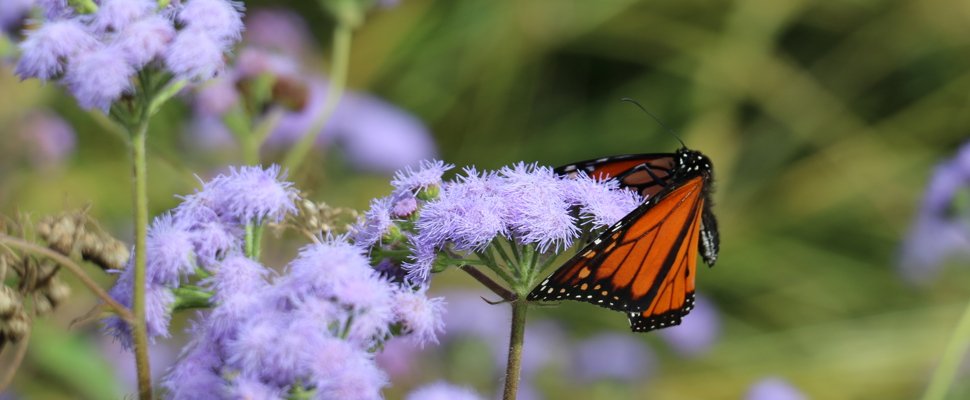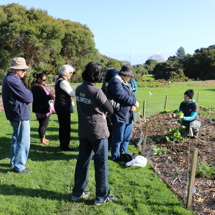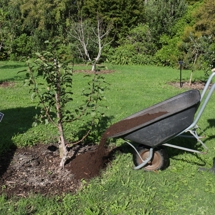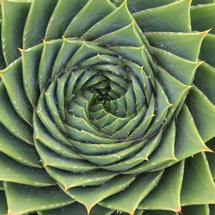
Biodiversity
A biologically diverse garden is a healthy garden with balanced plant, insect and bird life, just as in nature. A benefit of gardening in this way is that garden plants remain healthy and performing well despite the absence of insecticides and fungicides.
A diverse, balanced community will support a healthy garden ecosystem. The ground also supports a complex ecosystem. Most soil microorganisms are beneficial: a flourishing population of these will speed up decomposition and suppress the negative impacts of harmful organisms. Birds also help with seed distribution, pollination and pest control, while insects aid with pollination, decomposition, pest control and provide food for other wildlife.
The Auckland Botanic Gardens describes its sustainable approach to gardening as the use of methods that are productive today without diminishing future soil health, plant performance or yields.
Keys to successful sustainable gardening:
- Choose high performing plants that remain healthy without pesticide intervention.
- Plant a range of species and cultivars in the garden.
- Improve garden health through valuable practices such as composting and mulching.
- Protect and enhance wildlife - think of them as your garden workers!
Looking after wildlife:
- Ensure your garden has a selection of year-round seed, nectar and berries. Auckland Council has some great suggestions on where to start here.
- Let some plants to go to seed (in the vegetable garden too), so there are seeds for birds as well as for saving. Make sure to save seed from favourite, healthy plants to ensure they have the best chance for success next season. Some crops such as parsley, rocket and coriander with self-sow if allowed to produce seeds.
- Avoid feeding birds carbohydrate-rich foods, such as bread.
- Plant insect-friendly species, such as all of the carrot (Apiaceae/Umbelliferae), daisy (Asteraceae), myrtle (Myrtaceae), mint (Lamiaceae) and pea family (Leguminaceae).
- Bumblebees and honeybees love scented herbs and brightly coloured flowers, especially during their active season (spring-autumn). Draw bees to your garden with the blue or yellow flowers of borage, comfrey, nepeta, rosemary, lavender, marigold, zinnia, cosmos and calendula.
- Many modern hybrids have been bred for flower size and form, so do not produce much pollen or nectar. Double flowers are especially tricky for bees to access. Plants with single flowers are best for foragers and pollinators to source plenty of pollen and nectar.
- Only a small proportion of insects in your garden are pests. Most are beneficial, such as ladybirds, bees, bumblebees, hoverflies, beetles, parasitic wasps, earwigs, worms, wetas and spiders. Most insecticides will kill all of these insects as well as the target pests.
- Regularly mulch and compost your beds to retain water and build soil, insect and micro-organism life.
- Provide habitats for wildlife by leaving a small area ‘wild’ with some wood and pruning piles, stones or a piece of corrugated iron.
- Trees and large shrubs make excellent nesting places and vantage points for birds.
Read more about all these topics in our library. Search our library books here.
 What to grow
What to grow
 The seasons
The seasons
 Garden tips
Garden tips